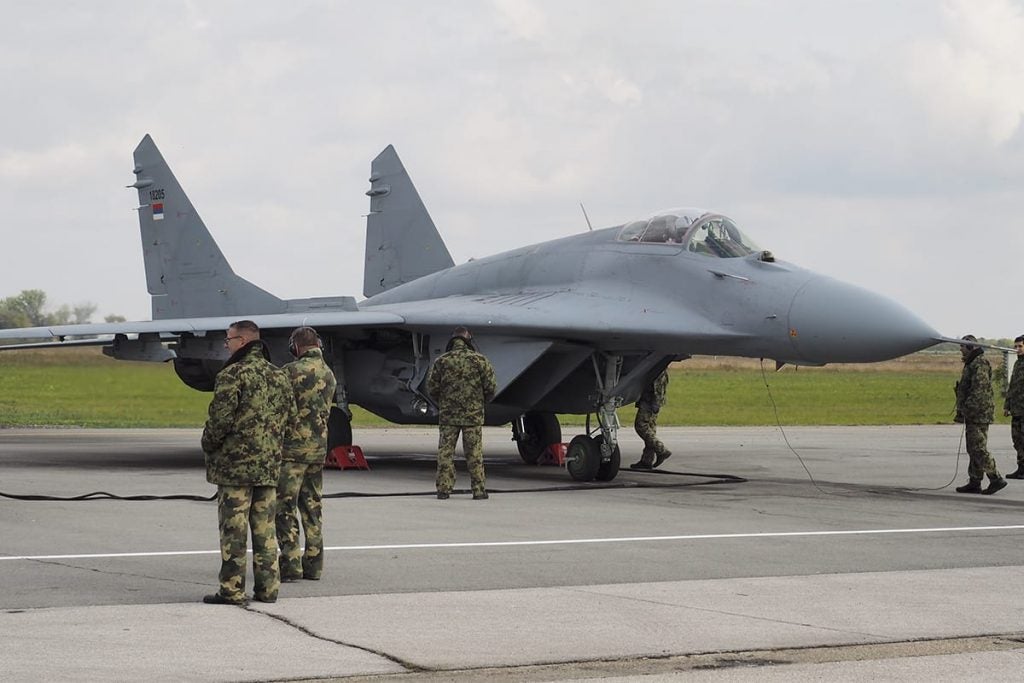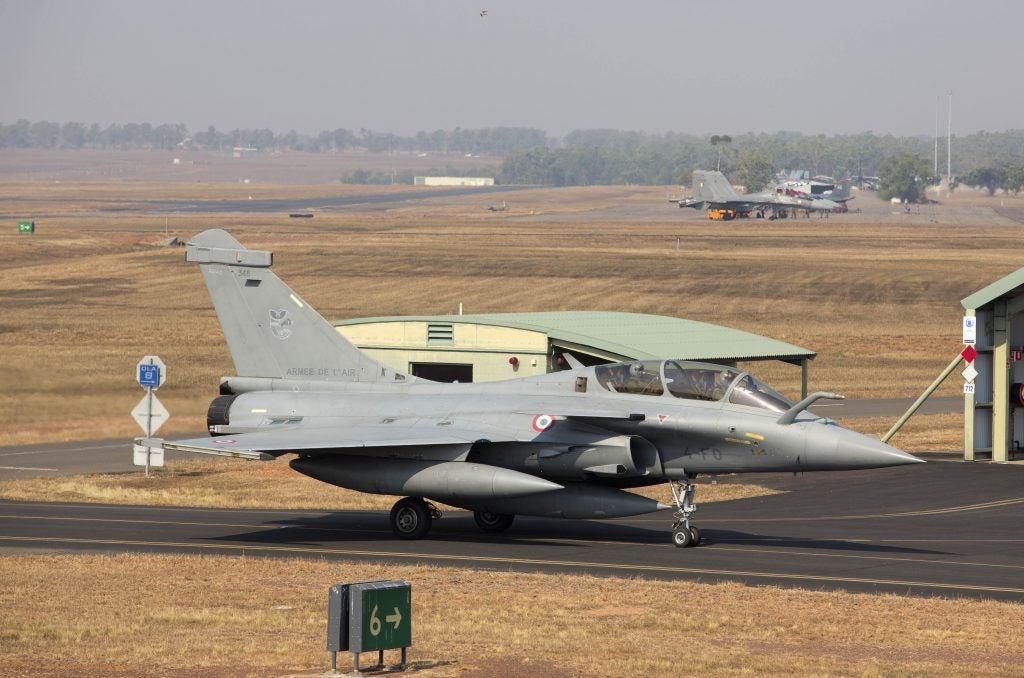Serbian President Claims Progress Towards Rafale Deal
President of Serbia Aleksandar Vucic claims to have made progress on a possible purchase of Dassault Rafale multirole aircraft for the Serbian Air Force, saying after a meeting with French President Emanuel Macron that a deal could be reached within two months.
On the last day of his trip to Paris, Vucic told Serbian reporters that a contract for the aircraft would be signed in “approximately two months, in the presence of the president of France” during a visit by Macron to Serbia. He added that the deal would open “some other chapters, some other opportunities for Serbia”.
While Vucic did not comment on the cost of the possible deal, he said in February 2023 that a deal could potentially cost around 3 billion euros ($3.25 billion), claiming at the time that it would be Serbia’s most expensive military procurement to date. Vucic has expressed interest in purchasing Rafales since 2021, with French financial newspaper La Tribune reporting in 2022 that Belgrade seeks to purchase 12 Rafales. The Rafales would replace Russian MiG-29 fighters and Yugoslav-era Soko J-22 attack aircraft. The French government has yet to comment on Vucic’s statements.

Serbia has traditionally relied on Russia as its main supplier of military hardware, and frequently claims that Russian military equipment deliveries are “donations” made due to the strength of the relationship between the two countries. However, several of its more recent purchases have been from Western European manufacturers, like its Airbus H145M helicopters, C-295 transports, and Mistral short range surface-to-air missile systems.
Vucic has also repeatedly made claims about military purchases that ultimately never materialized, such as his 2022 claims that Turkish President Recep Erdogan had promised him that Serbia would be able to purchase Baykar’s Bayraktar TB2 armed drone. No TB2s were ever delivered, with Vucic claiming in 2023 that Serbia had “refused” to purchase them shortly after Kosovo took delivery of five TB2s.
The claims of movement towards a potential sale also are made amongst growing criticism of what critics call a Western policy of appeasement towards Serbia despite its continued support of ethnic Serb secessionist forces in neighboring Bosnia and Herzegovina, and Kosovo, which Belgrade still refuses to recognize since its declaration of independence in 2008. In September 2023, Kosovo’s Prime Minister, Albin Kurti, accused the Serbian government of having supported ethnic Serb militants responsible for the attack on the Banjska Monastery in northern Kosovo, saying that the attack that killed a policeman would have been the start of a Serbian annexation attempt had it succeeded.

